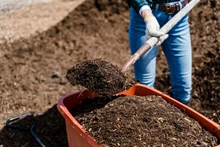
"Blue Zones" are specific regions known for their longer life expectancies and lower rates of chronic diseases. Factors such as diet, fasting, and exercise are linked to these regions, which include Italy, Greece, Japan, Costa Rica, and the United States. Despite the influence of genetics on lifespan and disease susceptibility, lifestyle choices play a significant role. These "Blue Zones" are geographic areas where people enjoy better health and live longer than in most other places worldwide.
What Are Blue Zones?
Blue Zones are regions or areas of the world where people are known to live longer, healthier lives compared to the global average. These regions have gained attention from researchers and health enthusiasts because they exhibit a higher concentration of centenarians (people who live to be 100 years or older) and a lower prevalence of age-related diseases such as heart disease, diabetes, and certain types of cancer. The term "Blue Zones" was popularized by Dan Buettner, a National Geographic Fellow, who conducted extensive research on these areas.
The original Blue Zones identified by Dan Buettner and his team include:
1. Sardinia, Italy: The mountainous region of Sardinia has a high concentration of male centenarians. The lifestyle in this region includes a plant-based diet, regular physical activity, strong social connections, and a sense of purpose.
2. Okinawa, Japan: Okinawa is known for its high life expectancy, with a diet rich in vegetables, tofu, and seafood. Residents also practice a concept called "ikigai," which means finding a sense of purpose and joy in daily life.
3. Nicoya Peninsula, Costa Rica: This region has a lower rate of middle-age mortality and a high number of centenarians. People here have a diet rich in beans and corn stay physically active, and have strong social networks.
4. Ikaria, Greece: On the Greek island of Ikaria, people have a diet that includes lots of vegetables, legumes, and olive oil. Regular physical activity, strong social connections, and a relaxed lifestyle contribute to their longevity.
5. Loma Linda, California, USA: Loma Linda is unique among Blue Zones because it's not a region but rather a community within California. It's home to a large population of Seventh-day Adventists, who follow a vegetarian diet, prioritize exercise, and emphasize rest and relaxation.
These Blue Zones share some common lifestyle factors that are believed to contribute to the exceptional longevity and well-being of their residents. These factors include a primarily plant-based diet, regular physical activity, strong social connections, a sense of purpose, and a low-stress lifestyle. Researchers and public health experts study Blue Zones to better understand the habits and practices that contribute to longevity, with the hope of applying these lessons to improve the health and well-being of populations worldwide.
Top 10 Reasons Why People Living In Blue Zones Live Longer
People living in Blue Zones tend to live longer due to a combination of lifestyle, diet, social, and environmental factors. Blue Zones are regions in the world where people have a higher-than-average life expectancy, often exceeding 90 years. These areas have been studied by researchers to understand why people there tend to live longer and healthier lives. Some key factors contributing to longevity in Blue Zones include:
-
Diet: Blue Zone residents typically follow a plant-based diet rich in fruits, vegetables, whole grains, and legumes. These diets are low in processed foods and sugar while being high in antioxidants and fibre, which promote overall health and longevity.
-
Physical Activity: People in Blue Zones are often physically active in their daily lives. They engage in regular, low-intensity physical activities such as walking, gardening, and manual labour, which help maintain their health and mobility as they age.
-
Social Connections: Strong social ties are a common feature of Blue Zone communities. These connections provide emotional support, reduce stress, and contribute to a sense of purpose, all of which can promote longevity.
-
Stress Reduction: Blue Zone residents tend to have lower levels of chronic stress compared to people in more urban and fast-paced environments. This can lead to reduced inflammation and lower risk of chronic diseases.
-
Moderate Alcohol Consumption: Some Blue Zone communities incorporate moderate alcohol consumption, usually in the form of red wine. However, this is typically done in the context of social gatherings and is not excessive.
-
Sense of Purpose: Having a sense of purpose or a reason to get up in the morning can contribute to longevity. Many Blue Zone residents have a strong sense of community and purpose in their daily lives.
-
Healthy Relationships: Blue Zone residents often prioritize family and maintain close-knit relationships. These relationships provide emotional support and a sense of belonging, which can positively impact health and longevity.
-
Limited Smoking: Smoking rates are generally lower in Blue Zones compared to other areas, which reduces the risk of smoking-related diseases.
-
Access to Healthcare: While not universal, access to healthcare is generally good in Blue Zones. Regular medical check-ups and preventive care can catch health issues early and promote overall well-being.
-
Environmental Factors: Blue Zones often have clean air and access to natural spaces, which can contribute to better health outcomes.
It's important to note that while these lifestyle factors are common in Blue Zones, there is no single formula for longevity, and genetics also play a role. Additionally, not all individuals within Blue Zones follow these practices, but the prevalence of these habits in the community contributes to the overall longevity observed in these regions. Researchers continue to study Blue Zones to gain insights into healthy aging and longevity.












